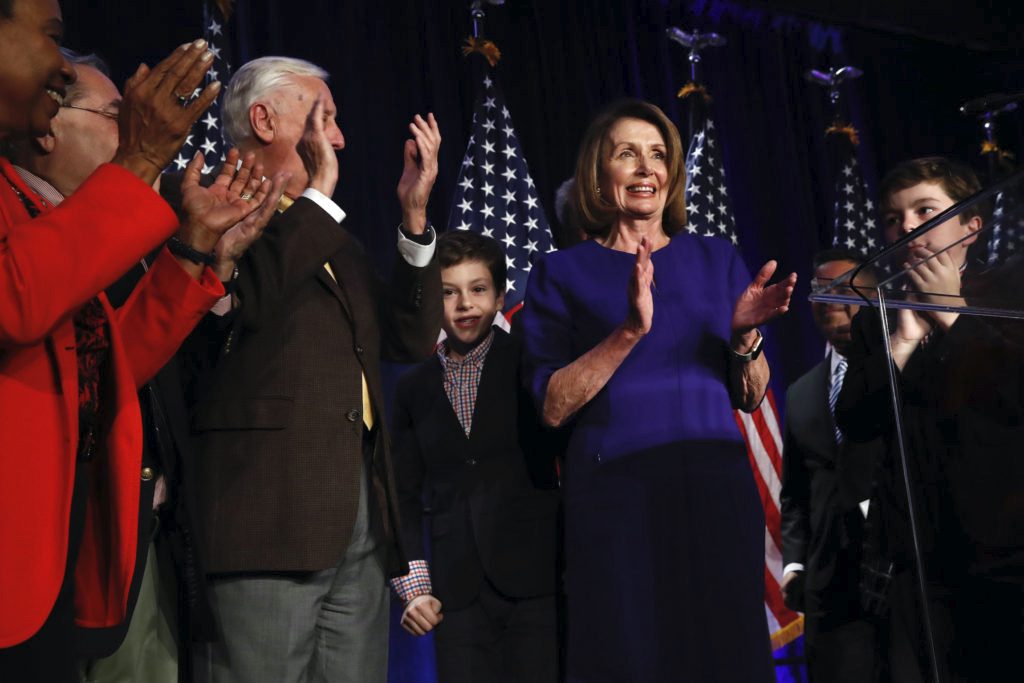Table Of Content

Further, a group of nine conservative Republicans wrote a letter over the weekend expressing skepticism over his potential speakership, saying McCarthy has not yet done enough to earn their support. They include Reps. Paul Gosar of Arizona, Chip Roy of Texas, Scott Perry of Pennsylvania, Dan Bishop of North Carolina, Andrew Clyde of Georgia, Andy Harris of Maryland and three representative-elects. One McCarthy critic, Rep. Matt Gaetz of Florida, cast votes for Donald Trump — a symbolic but pointed sign of the broad divisions over the Republican Party’s future. Then he went further, moving the day from protest toward the absurd in formally nominating the former president to be House speaker on the 11th ballot. The contours of an agreement with holdouts from the conservative Freedom Caucus began to take shape, including several of the key rules changes they have been seeking for months.
Heritage Museum of Orange County
Moreover, in 1975, the speaker was granted the authority to appoint a majority of the members of the Rules Committee. Meanwhile, the power of committee chairmen was curtailed, further increasing the relative influence of the speaker. House of Representatives, who is elected by the majority party to lead the House. The speaker presides over debate, appoints members of select and conference committees, establishes the legislative agenda, maintains order within the House, and administers the oath of office to House members.
List of living former Speakers
Even if McCarthy is able to secure the votes he needs, he will emerge as a weakened speaker, having given away some powers and constantly under a threat of being voted out by his detractors. But he would also be potentially emboldened as a survivor of one of the more brutal fights for the gavel in U.S. history. Now, as the House seeks a new speaker, the 118th is the first ever Congress to need two speaker elections with multiple ballots.
Speaker pro tempore
The revelation of Dunn’s plan is likely to make for awkward workplace dynamics, the first source said, but is unlikely to result in Jean-Pierre’s departure. “There’s a huge diversity issue and they’re afraid of what folks are going to say,” added this source, who said they learned of the effort from multiple people briefed by Dunn and confirmed at least one person from outside the administration did speak with Jean-Pierre. The visit came as college campuses continue to be roiled by protests and tensions related to the Israel-Hamas war. Many of the protesters are demanding universities to divest financial holdings in Israel. At Columbia, demonstrators have taken over a portion of the New York City campus, creating an encampment.
White House scolds ‘we should not make jokes’ about Biden claim cannibals ate uncle
Kevin McCarthy voted out: first House Speaker to be ousted - The Associated Press
Kevin McCarthy voted out: first House Speaker to be ousted.
Posted: Tue, 03 Oct 2023 07:00:00 GMT [source]
The most recent election to occur mid-way through a Congress occurred on October 29, 2015, when it elected Congressman Paul Ryan of Wisconsin. While every speaker has been a sitting member of Congress, the Constitution makes no requirements of House membership to hold the office. Toward the end of the 19th century, the office of speaker began to develop into a very powerful one. At the time, one of the most important sources of the speaker's power was his position as Chairman of the Committee on Rules, which, after the reorganization of the committee system in 1880, became one of the most powerful standing committees of the House. Furthermore, several speakers became leading figures in their political parties; examples include Democrats Samuel J. Randall, John Griffin Carlisle, and Charles F. Crisp, and Republicans James G. Blaine, Thomas Brackett Reed, and Joseph Gurney Cannon. Meanwhile, Republicans nationally have seized upon a reluctance from university presidents to call out antisemitism on their campuses in the wake of the Israel-Hamas war.

“I am supporting the conference whether we win or lose but I think we are going to win,” he added. Jordan was asked specifically about GOP Rep. Ken Buck’s concerns over his past statements on the 2020 election, Jordan doubled down insisting a vast majority of GOP members objected. Democratic Rep. Jim McGovern said the idea of Jim Jordan as speaker was "disgusting" and that "Halloween is coming early if Jordan is speaker."
Repository
The party settled on Ways and Means Chairman Paul Ryan of Wisconsin, who had not sought the gavel but agreed to take it. The No. 2 Republican at the time did not have the votes, and the No. 3 declined to run. The chairman of the Appropriations Committee was nominated by the party conference but withdrew after a magazine story accused him of marital infidelity. Just such a "motion to vacate the chair" was filed against Johnson in March by Rep. Marjorie Taylor Greene, R-Ga.

Search All Oral History Media
Rayburn's successor, Democrat John W. McCormack (served 1962–1971), was a somewhat less influential speaker, particularly because of dissent from younger members of the Democratic Party. During the mid-1970s, the power of the speakership once again grew under Democrat Carl Albert. The Committee on Rules ceased to be a semi-independent panel, as it had been since 1910.
They were also frustrated at the terms of a deal he cut with President Joe Biden to raise the nation’s debt limit earlier this year. This wing of the GOP is absolutist in its view of federal spending and some have even expressed willingness to entertain a default or shutdown to get what they want. Cooper, whose parents had operated a station on the Underground Railroad by which escaped slaves reached freedom, was a longtime ally of Wisconsin's legendary progressive governor and Sen. Robert "Fighting Bob" LaFollette. When Cooper was opposing Gillett in the House, LaFollette was conducting a smaller-scale revolt against the GOP leaders in the Senate. Two years after that, Gillett's party rode to a huge majority on the same postwar wave that swept Warren G. Harding into the White House in 1920. The party of Lincoln was gaining ground in most of the country and beginning a decade of Washington domination in the White House and Congress alike.
But in his last rounds of attempting to secure votes, he was reported to have given in even on this issue. But having reached the top of the leadership ladder, these men represented a party establishment regarded with hostility by a potent faction of the party. For generations it was the definition of party loyalty for every member of each party to vote for its nominee for speaker. In fact for 50 years after World War II, not a single stray vote was cast for anyone other than the two major party nominees. The longest serving speaker was Sam Rayburn of Texas, who served on three separate occasions in the 1940s, 50s, and 60s. One Speaker, James K. Polk, went on to become the 11th President of the United States; both Schuyler Colfax and John Nance Garner later became Vice President.
There have been 54 speakers of the United States House of Representatives since the formation of the office in 1789 until present, from Frederick Muhlenberg to Paul Ryan, the incumbent. As the presiding officer over the United States House of Representatives, the speaker is second in line for the presidency, after the Vice President. Unlike some Westminster system parliaments, in which the office of Speaker is considered non-partisan, in the United States, the Speaker of the House is a leadership position and the office-holder actively works to set the majority party's legislative agenda. The Speaker usually does not personally preside over debates, instead delegating the duty to members of the House from the majority party. Aside from duties relating to heading the House and the majority political party, the Speaker also performs administrative and procedural functions, and represents his or her Congressional district.
Rep. Jim Jordan, who on Friday lost his third round of voting and later lost in a secret ballot, is no longer a nominee. House Republicans are once again scrambling with no clear path to elect a new speaker after voting to push Ohio Rep. Jim Jordan out of the race — the latest sign of the chaos and divisions that have engulfed the majority party and left the chamber in a state of paralysis. Jordan has made a name for himself as a staunch ally of Donald Trump and was endorsed by the former president in his bid for the speakership.
Two rival delegations, one Whig and the other Democrat, had been certified as elected by different branches of the New Jersey government. The problem was compounded by the fact that the result of the dispute would determine whether the Whigs or the Democrats held the majority. Neither party agreed to permit a speakership election with the opposite party's delegation participating.


No comments:
Post a Comment